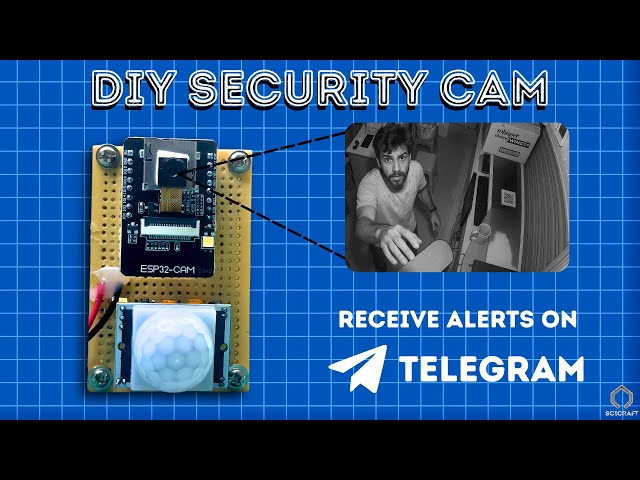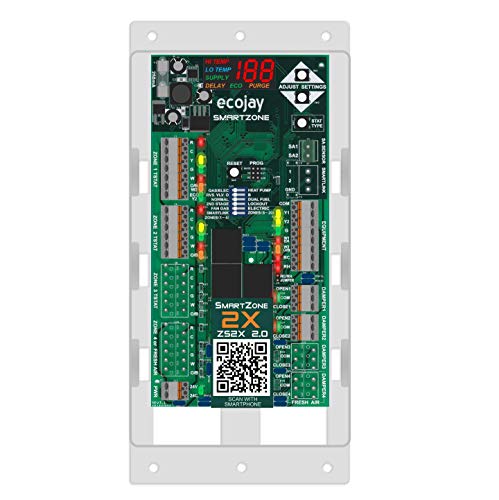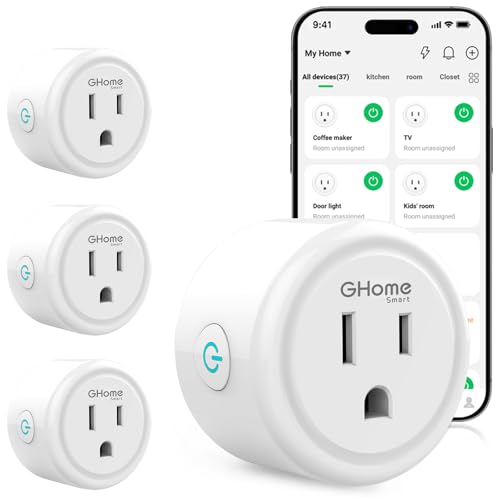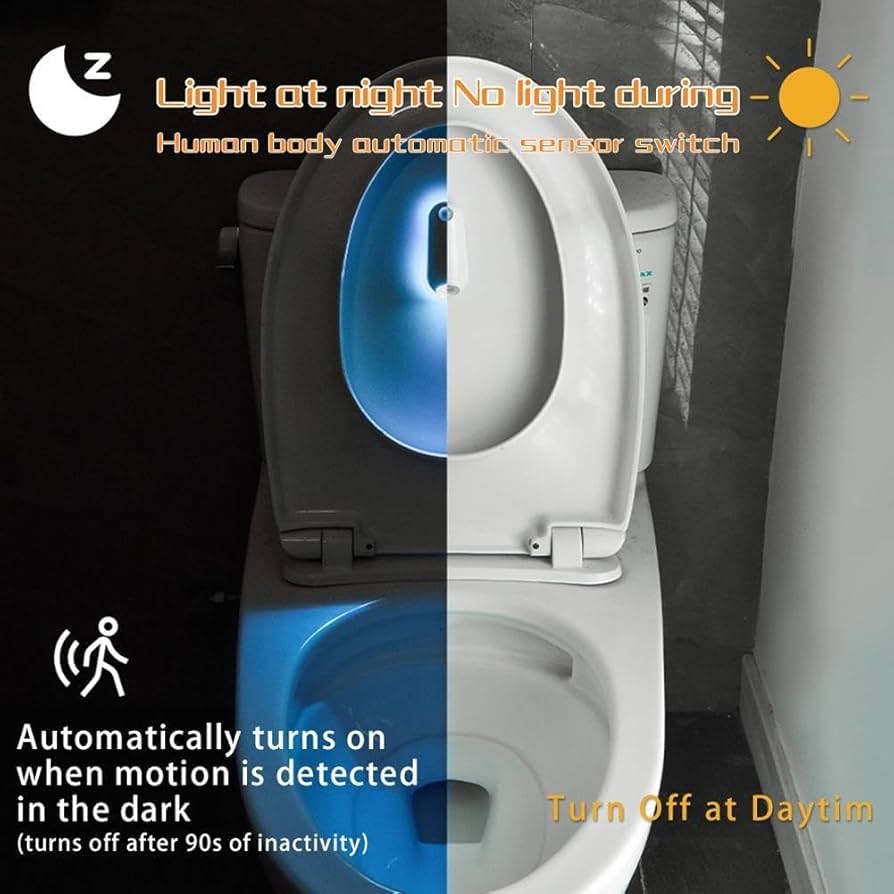Your home is more than just a building – it’s where your loved ones feel safe and your most valuable belongings are kept. But how confident are you that your home is truly secure?
Imagine the peace of mind that comes from knowing your home is protected against unexpected threats. You’ll discover simple yet powerful ways to boost your home security. Keep reading to learn how small changes can make a big difference in keeping your family and property safe.

Credit: www.forbes.com
Choosing The Right Security System
Keeping your home safe is very important. Picking the right security system helps protect your family and belongings.
There are many types of systems to choose from. Knowing their features helps you make a smart choice.
Types Of Security Systems
Security systems come in many forms. Some use cameras, alarms, or sensors to keep your home safe.
You can pick wired or wireless systems. Each has its own benefits and costs.
- Wired systems offer stable connections but need installation
- Wireless systems are easy to install and flexible
- Camera systems show live video of your home
- Alarm systems alert you of intruders or fire
- Motion sensors detect movement inside or outside
Smart Home Integration
Some security systems connect with smart home devices. This lets you control them from your phone or tablet.
You can receive alerts, lock doors, or view cameras remotely. This adds convenience and quick response to threats.
- Control alarms and cameras using apps
- Connect with smart lights and locks
- Set schedules for your system
- Monitor your home from anywhere
Professional Monitoring Vs Diy
Professional monitoring means a company watches your system 24/7. They call authorities if needed.
DIY systems let you monitor your home yourself. You get alerts but must act on them.
- Professional monitoring offers faster emergency response
- DIY systems are cheaper and flexible
- Professional systems need contracts and fees
- DIY systems are easy to install and cancel anytime
Securing Doors And Windows
Doors and windows are the main entry points for a home. Keeping them secure helps protect your family and belongings.
Use simple but strong methods to make these areas harder to break into. This guide covers key ways to secure them.
High-quality Locks
Strong locks make it tough for intruders to open doors and windows. Choose locks with good ratings for security.
Deadbolt locks are better than standard ones. Use locks that need a key or code to open from outside.
- Install deadbolt locks on all exterior doors
- Use key-operated locks on sliding doors and windows
- Check locks regularly for wear and replace if needed
Reinforcement Techniques
Reinforce doors and frames to resist forced entry. Weak frames can let intruders break in even with good locks.
Add metal plates and strong hinges to support doors. Use long screws that reach the wall studs for better hold.
- Install strike plates with 3-inch screws
- Use door jamb reinforcement kits
- Replace hollow core doors with solid wood or metal doors
- Secure door hinges with non-removable pins
Window Security Measures
Windows need locks and barriers to stop easy entry. Use devices that block the window from opening fully.
Install security film to hold glass together if broken. Add window sensors to alert you if a window opens.
- Use window locks or pins to stop sliding
- Add security bars or grilles for extra protection
- Apply shatter-resistant window film
- Consider window alarms for added safety
Outdoor Safety Measures
Keeping your home safe starts outside. Outdoor safety helps stop crime before it begins.
Simple steps can make your home less inviting to intruders. Use these tips to protect your property.
Effective Lighting
Good lighting makes it hard for intruders to hide. Bright lights outside your home help you see clearly at night.
Use motion sensor lights near doors and walkways. These lights turn on when someone moves nearby.
- Install lights near entrances and dark corners
- Use energy-saving LED bulbs
- Check lights regularly to keep them working
Surveillance Cameras
Security cameras watch your property all the time. They can scare away thieves and record any unusual activity.
Place cameras where they cover main entry points and driveways. Make sure the cameras have good night vision.
- Use clear signs to show cameras are present
- Choose cameras with motion detection
- Store video safely for later review
Landscaping For Security
Plants and trees can help or hurt home safety. Keep bushes trimmed so no one can hide behind them.
Use thorny plants near windows and fences to deter intruders. Clear paths improve visibility around your home.
- Trim shrubs to keep views clear
- Plant thorny bushes under windows
- Keep walkways free from tall plants

Credit: www.indiamart.com
Emergency Preparedness
Being ready for emergencies helps protect your home and family. Preparing ahead can reduce risks and keep everyone safe.
Planning for different emergencies makes it easier to act quickly and calmly. This guide covers key areas for home safety.
Safe Rooms And Escape Plans
A safe room is a secure place to stay during danger. It should have strong locks and emergency supplies.
Escape plans help everyone leave the house safely. Practice your plan often and choose two exit routes.
- Pick a room with no windows or strong doors
- Keep emergency tools like flashlights and first aid kits
- Plan escape routes that avoid fire or hazards
- Set a meeting place outside the home
- Teach all family members the plan
Alarm Systems And Alerts
Alarm systems warn you of break-ins or emergencies. Choose alarms that notify you quickly and clearly.
Alerts can include loud sounds, phone notifications, or lights. Test alarms regularly to ensure they work well.
- Install door and window sensors
- Use motion detectors in key areas
- Set alarms that connect to your phone
- Check battery levels monthly
- Teach family how to respond to alarms
Fire And Carbon Monoxide Safety
Fire and carbon monoxide are dangerous inside homes. Install detectors to warn you early of these risks.
Keep detectors clean and test them each month. Replace batteries once a year or as needed.
- Place smoke detectors in every bedroom and hallway
- Install carbon monoxide detectors near sleeping areas
- Have fire extinguishers in kitchen and garage
- Plan how to leave quickly if alarms sound
- Never ignore detector alerts
Cybersecurity For Smart Homes
Smart homes use many internet-connected devices. These devices need strong protection to keep your home safe.
Cybersecurity helps stop hackers from accessing your smart devices and personal data.
Securing Wi-fi Networks
Your Wi-Fi network connects all smart devices. Protecting it is very important to stop intruders.
Use strong encryption and change default network names to keep hackers away.
- Use WPA3 encryption for better security
- Change the default network name (SSID)
- Disable remote management features
- Keep your router’s firmware updated
Protecting Smart Devices
Smart devices like cameras and speakers need protection from cyber attacks. Keep them secure at all times.
Update device software regularly and avoid using unsecured public Wi-Fi with your devices.
- Install updates and patches promptly
- Turn off devices when not in use
- Avoid using public Wi-Fi to control devices
- Buy devices from trusted brands only
Password Management
Strong passwords protect your smart home accounts. Use unique passwords for each device and service.
Change default passwords and use a password manager to keep track of them safely.
- Create long passwords with letters, numbers, and symbols
- Never reuse passwords across devices or accounts
- Change default passwords immediately
- Use a password manager for easy storage
Involving The Whole Family
Home security works best when every family member takes part. Each person should know what to do in an emergency. This helps keep everyone safe and calm.
Teaching security habits to children and adults builds strong protection. It also creates teamwork inside the home.
Safety Drills And Training
Practice safety drills with your family regularly. Drills prepare everyone for real-life situations like fires or break-ins. They help reduce fear during emergencies.
Train your family on how to use security systems and alarms. Show them where emergency exits are and how to lock doors quickly.
- Set a schedule for monthly safety drills
- Practice fire escape routes
- Show how to call emergency services
- Teach how to use security devices
Communication Strategies
Clear communication helps families stay safe. Agree on signals or words for emergencies. Make sure everyone understands them.
Use simple methods like phone calls or group chats to share security updates. Talk often about safety rules and any changes.
- Create a family safety plan
- Choose emergency contact persons
- Use easy codes for quick alerts
- Review plans regularly together
Teaching Children About Security
Teach children about home safety in a calm way. Use simple words to explain dangers and how to stay safe. Encourage them to ask questions.
Show kids how to lock doors and use alarms. Practice what to do if they hear strange noises or see strangers outside.
- Explain why security is important
- Teach how to call for help
- Practice safe stranger rules
- Reinforce good habits often
Maintaining Home Security Over Time
Keeping your home safe is not a one-time task. It needs regular care and attention.
Over time, new risks can arise. Your security system must stay ready and strong.
Regular System Updates
Security systems need updates to work well. Updates fix problems and add new features.
Always install updates for your alarms, cameras, and software on time. This keeps your system safe.
- Check for updates monthly
- Use automatic update settings
- Restart devices after updates
Routine Security Checks
Regular checks help find weak points in your home security. Check all devices and locks often.
Test alarms and cameras to make sure they work. Look for broken sensors or dead batteries.
- Test alarms every month
- Inspect door and window locks
- Replace batteries regularly
- Clean cameras for clear views
Adapting To New Threats
New security threats appear all the time. Stay aware of changes in your area and technology.
Update your plans and tools to face new risks. Add smart devices or change routines if needed.
- Watch news about local crime
- Learn about new security tools
- Change routines to stay safe
- Ask experts for advice when needed

Credit: www.amazon.in
Frequently Asked Questions
What Are The Best Home Security Systems?
The best home security systems combine technology and reliability. Look for systems with 24/7 monitoring, mobile app control, and smart home integration. Brands like ADT, SimpliSafe, and Ring are popular choices. Consider features like cameras, motion sensors, and alarms. Choose a system that suits your budget and security needs.
How Can I Improve Home Security Affordably?
Improving home security affordably is possible. Start with reinforcing doors and windows. Install motion-sensor lights around your property. Use smart doorbells and security cameras for monitoring. Regularly update passwords for smart devices. These steps enhance security without breaking the bank.
Are Diy Security Systems Effective?
DIY security systems can be effective. They offer flexibility and cost savings. With easy installation and customization, they suit many homes. Look for systems with mobile alerts and remote monitoring. Ensure they cover entry points and include motion detectors. Research and compare options before purchasing.
How Does Smart Home Security Work?
Smart home security integrates devices for seamless protection. It uses internet connectivity for real-time monitoring and control. Devices like cameras, alarms, and sensors communicate via a central hub. Users receive alerts on their smartphones. This setup allows remote access and management, enhancing security.
Conclusion
Keeping your home safe brings peace of mind every day. Simple steps can protect your family and belongings. Choose strong locks and good lighting outside. Install alarms or cameras to watch your property. Stay alert and check your security often.
Small actions can stop big problems before they start. Remember, safety begins with you and your choices. Protect your home, protect your loved ones. Security is a smart, easy habit to build.
19 min read






